Iodine Indicator Powder is a vital chemical reagent used primarily in laboratory and industrial applications. It is widely used as an indicator in titrations, specifically to detect the presence of starch, which forms a blue-black complex when iodine is present. This product plays an essential role in chemical analysis, food processing, and various other industrial processes, thanks to its ability to interact with iodine and exhibit a distinct color change.
Applications of Iodine Indicator Powder
1. Laboratory Titration and Chemical Analysis
- Starch Detection:
One of the primary uses of Iodine Indicator Powder is in starch detection. When iodine is introduced into a solution containing starch, it binds to the starch molecules, forming a characteristic blue-black color. This reaction is used in various analytical procedures to test for the presence of starch in food products, biological samples, and laboratory solutions. Iodine Indicator Powder is often employed in iodine titration experiments to determine the concentration of iodine in solutions. - Iodine Titrations:
In redox titrations, Iodine Indicator Powder is used to detect iodine levels. It serves as a precise method for determining the concentration of iodine or other oxidizing agents in a solution. The indicator powder helps identify the endpoint of the titration, which occurs when the iodine is completely consumed, and the solution no longer shows the characteristic blue-black color. - Pulp and Paper Industry:
Iodine Indicator Powder can be used in the pulp and paper industry for the analysis of starch content in raw materials and finished products. The presence of starch can impact the quality of the paper and the effectiveness of chemical processes in manufacturing.
2. Food Processing and Quality Control
- Starch Testing in Food:
In food processing, Iodine Indicator Powder plays a crucial role in determining the amount of starch in food products. It is often used in quality control processes to assess the starch content in products like flours, cereals, and other processed foods. This is especially important for ensuring that the food products meet certain nutritional standards or ingredient requirements. - Quality Control in Agriculture:
Iodine Indicator Powder can also be applied in agriculture to test the starch content in crops like potatoes, corn, and other starch-rich plants. This is useful for assessing the ripeness and quality of agricultural products, particularly in determining the suitability of crops for food or industrial processing.
3. Environmental and Soil Testing
- Soil Starch Content Testing:
In environmental chemistry, Iodine Indicator Powder can be used to test for starch in soil samples. This is valuable in studies that investigate the decomposition of organic matter in the soil. By detecting starch in soil, researchers can gain insights into the microbial activity and soil health, which is crucial for agricultural practices. - Water Quality Testing:
The iodine test can also be applied in environmental settings to test for contamination or the presence of starch-related pollutants in water. Although this application is less common, it can be used in more specialized water analysis tasks.
4. Educational Applications
- Teaching Tool in Chemistry:
Iodine Indicator Powder is widely used in educational settings for teaching purposes. It is a key component in demonstrating the iodine-starch reaction in chemistry experiments. It helps students understand the principles of chemical reactions, indicator substances, and titration techniques. This simple but effective reaction serves as a visual and educational tool to explain the concepts of chemical bonding and reactivity.
5. Pharmaceutical and Medical Applications
- Pharmaceutical Testing:
In pharmaceutical industries, Iodine Indicator Powder can be used in quality control to determine the presence of starch in pharmaceutical excipients (inactive ingredients). Starch is commonly used as a binder or filler in tablet formulations, and this test ensures the proper composition and quality of the final product. - Diagnostic Testing:
Some diagnostic applications make use of the iodine-starch complex in tests that examine the presence of certain substances in medical or biological samples. For example, it may be used to detect bacterial growth in laboratory cultures that produce starch-degrading enzymes.
6. Miscellaneous Industrial Uses
- Textile and Dye Industry:
Iodine Indicator Powder can be used in the textile industry for dyeing processes and quality control. It helps assess the presence of starch or iodine in various textile products, which may be important in certain treatments or finishing processes for fabrics. - Electronics Manufacturing:
In electronics, Iodine Indicator Powder can be involved in certain chemical processes or tests that involve the detection of starch-like substances or iodine solutions, especially in the manufacturing of semiconductors or insulating materials.
Advantages of Using Iodine Indicator Powder
- Accurate Starch Detection:
The iodine reaction with starch provides a clear, visible endpoint, making it an easy-to-use method for starch detection in food, agricultural, and laboratory samples. - Versatile Applications:
Beyond starch detection, Iodine Indicator Powder is also useful in titrations, food processing, environmental testing, and educational purposes, making it a versatile tool in multiple industries. - Cost-Effective:
Iodine Indicator Powder is an affordable solution for many applications, particularly in research and educational environments, where large quantities of materials may be needed. - Reliable and Sensitive:
The indicator’s color change is reliable and sensitive to even trace amounts of starch or iodine, ensuring precise analysis in various fields.

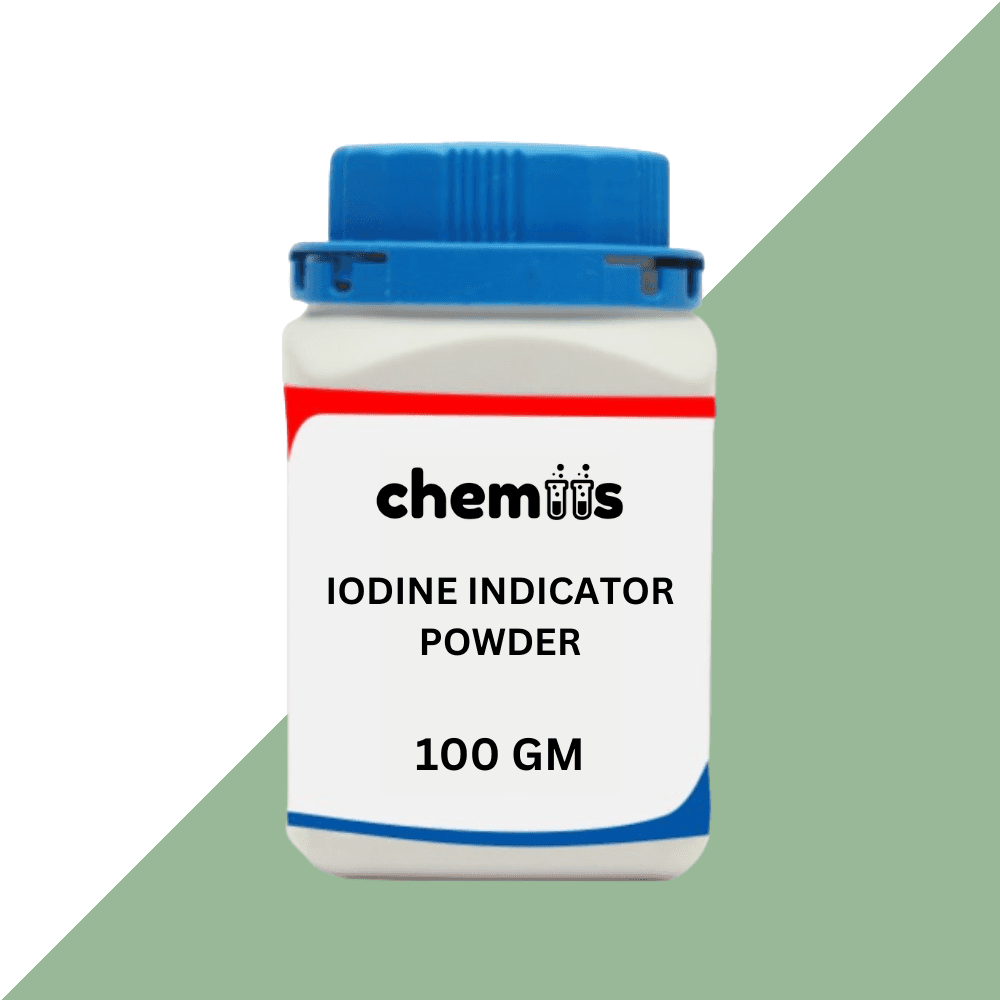
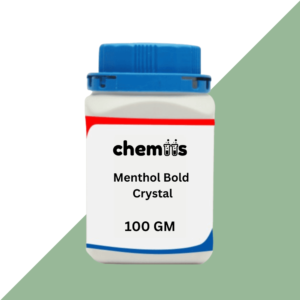
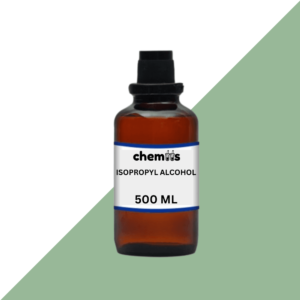


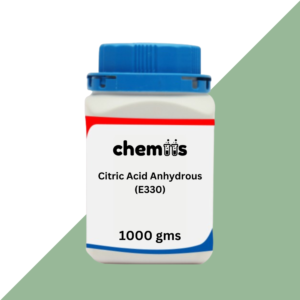
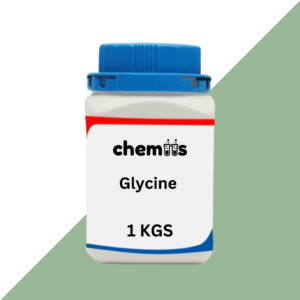
Namrata Bansode (verified owner) –
Very responsive team.
Ritesh Jain (verified owner) –
Excellent packaging.
Sheetal Mehrotra (verified owner) –
Arrived earlier than expected.
Harshit Reddy (verified owner) –
Reasonably priced.
Tushar Kohli (verified owner) –
All items intact.
Kunal Rathi (verified owner) –
Very well worth the money.
Jayant Mishra (verified owner) –
Received in perfect condition.
Rahul Verma (verified owner) –
Amazing value for money.
Nivedita Gopal (verified owner) –
Everything went smoothly.
Ramesh Natarajan (verified owner) –
Excellent online store.